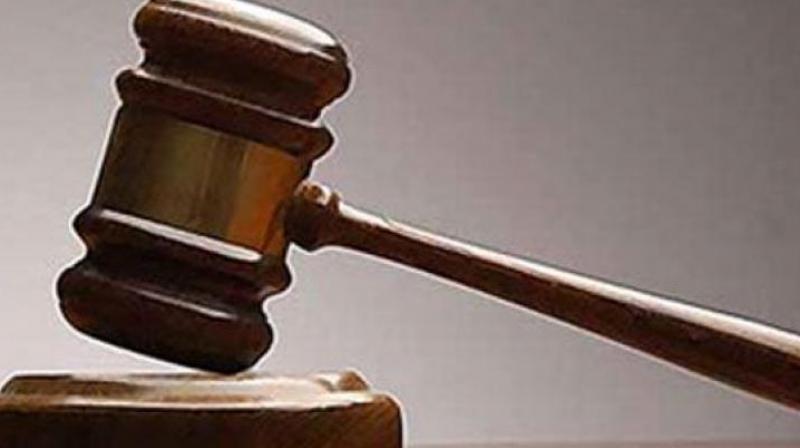Telangana HC sets up panel to end RTC stir
The court sought the response of the Telangana state government by Wednesday afternoon to its proposal to constitute the committee.;

Hyderabad: After a fairly long period of time without any concrete step towards a redressal to the ongoing RTC strike, as a last resort, the Telangana High Court on Tuesday came to a decision to constitute a high powered committee, comprising three retired judges of the Supreme Court to conduct arbitral proceedings.
The court sought the response of the Telangana state government by Wednesday afternoon to its proposal to constitute the committee. However, the division bench comprising Chief Justice Raghavendra Singh Chauhan and Justice A. Abhishek Reddy made it clear to the government that it would “direct the state to participate in arbitration proceedings rather than requesting it.”
Chief Justice Chauhan said, “This time, this court will not request the government to hold talks with trade unions, as we have been doing so far. Rather, we will direct the government to appear before the committee.”
While dealing with PILs related to RTC strike, its tenth sitting on the issue since they were filed, the High Court said that it had decided to form a committee, under Section 10A of Industrial Disputes Act, 1947, as a last resort. It told the government that it would give one week to the committee to negotiate with the government, RTC and trade unions to resolve the issue.
“Frankly speaking, perhaps our voice might have carried less weight to proceed with negotiations, but this court hopes that voice of retired supreme court judges will carry more prominence than ours,” CJ Chauhan observed.
The CJ further said, “The court hopes that a minimum 0.001 per cent positive result will emanate from this yet to commence re-conciliation proceedings, which will be taken up by the high powered committee.”
The bench directed B.S. Prasad, advocate general, Telangana, to inform the government about the decision the High Court is contemplating to take and revert by Wednesday afternoon. However, the AG, while shouldering to intimate the state of the court’s decision, tried to convince the bench that conciliation proceedings were not fruitful, because the trade unions took a drastic decision to go ahead with strike after walking out of conciliation and negotiation proceedings conducted earlier in October.
In an attempt to convey that the High Court had no power to constitute such a committee, the AG cited the Central government’s submissions, which in an affidavit, said that issues related to industrial disputes ought not to be adjudicated by High Court.
Welcoming the proposal to constitute a High Power Committee, D. Prakash Reddy, senior counsel appearing for trade unions, submitted that his clients and RTC workers would reconsider their stand to continue strike, once the committee was constituted. His submissions were recorded by the court. Earlier, G. Vidyasagar, senior counsel, appointed as amicus curiae by the High Court to assist the court in resolving this situation, informed the bench that a Supreme Court judgment says that courts cannot decide whether strike was legal or illegal.

